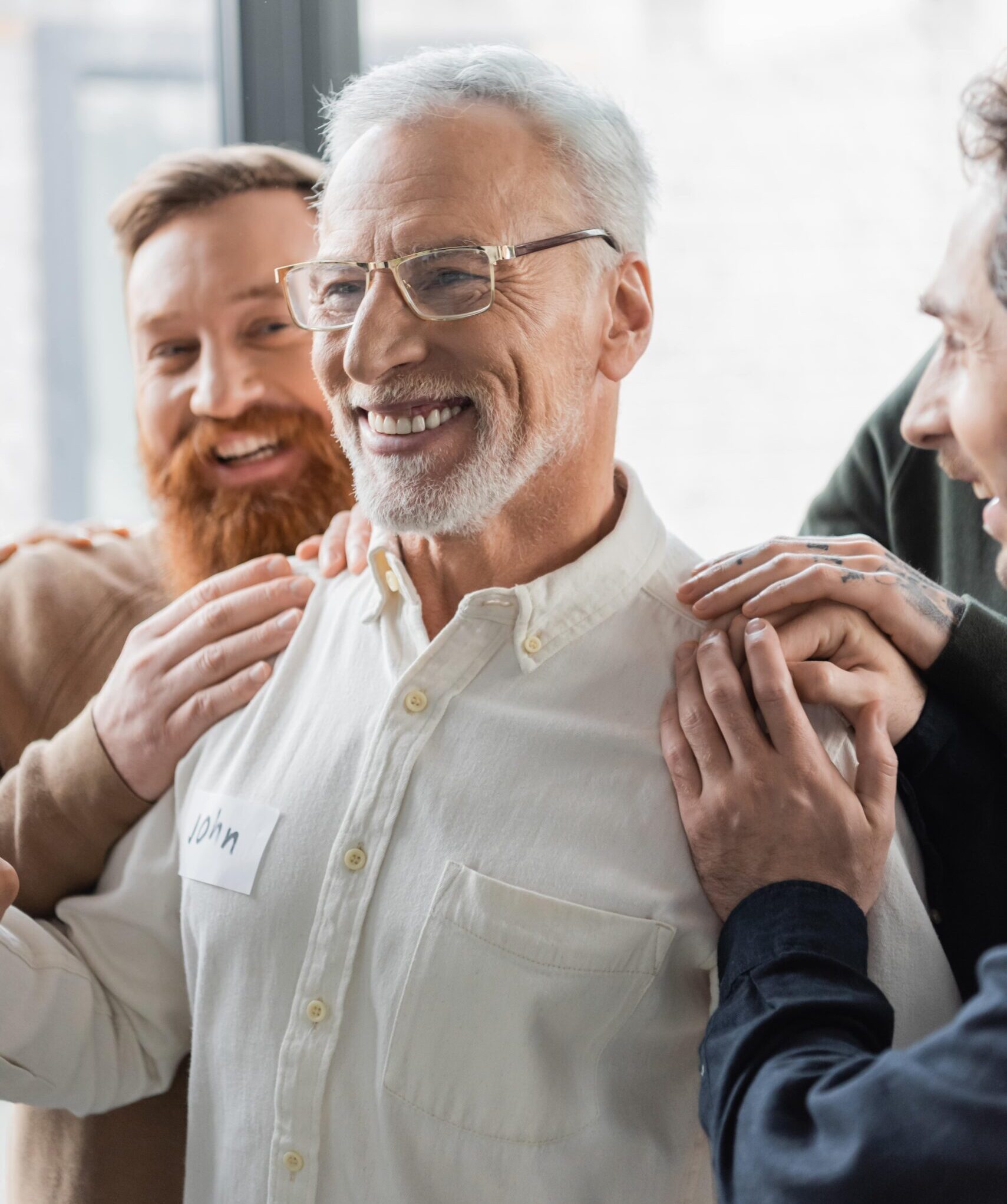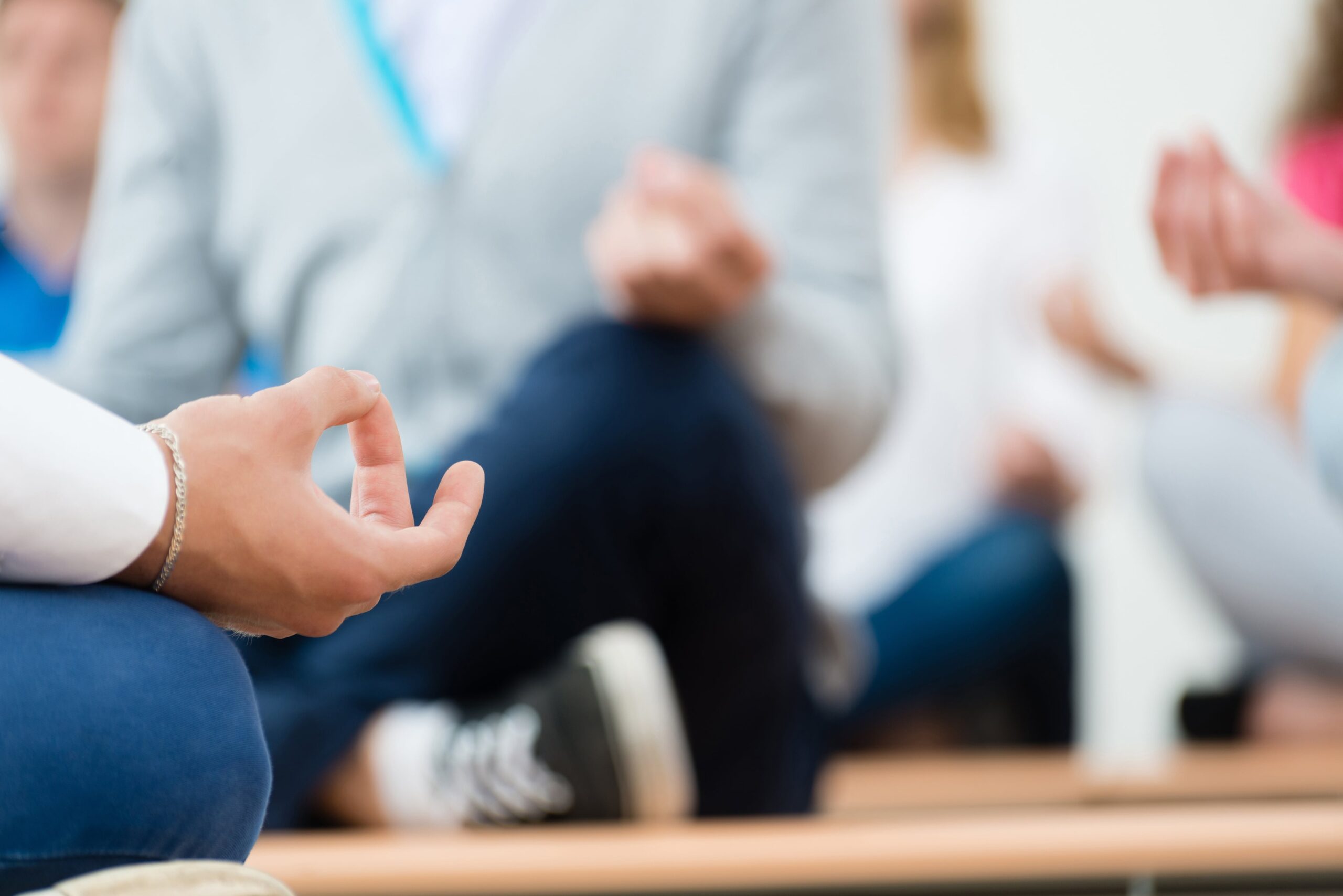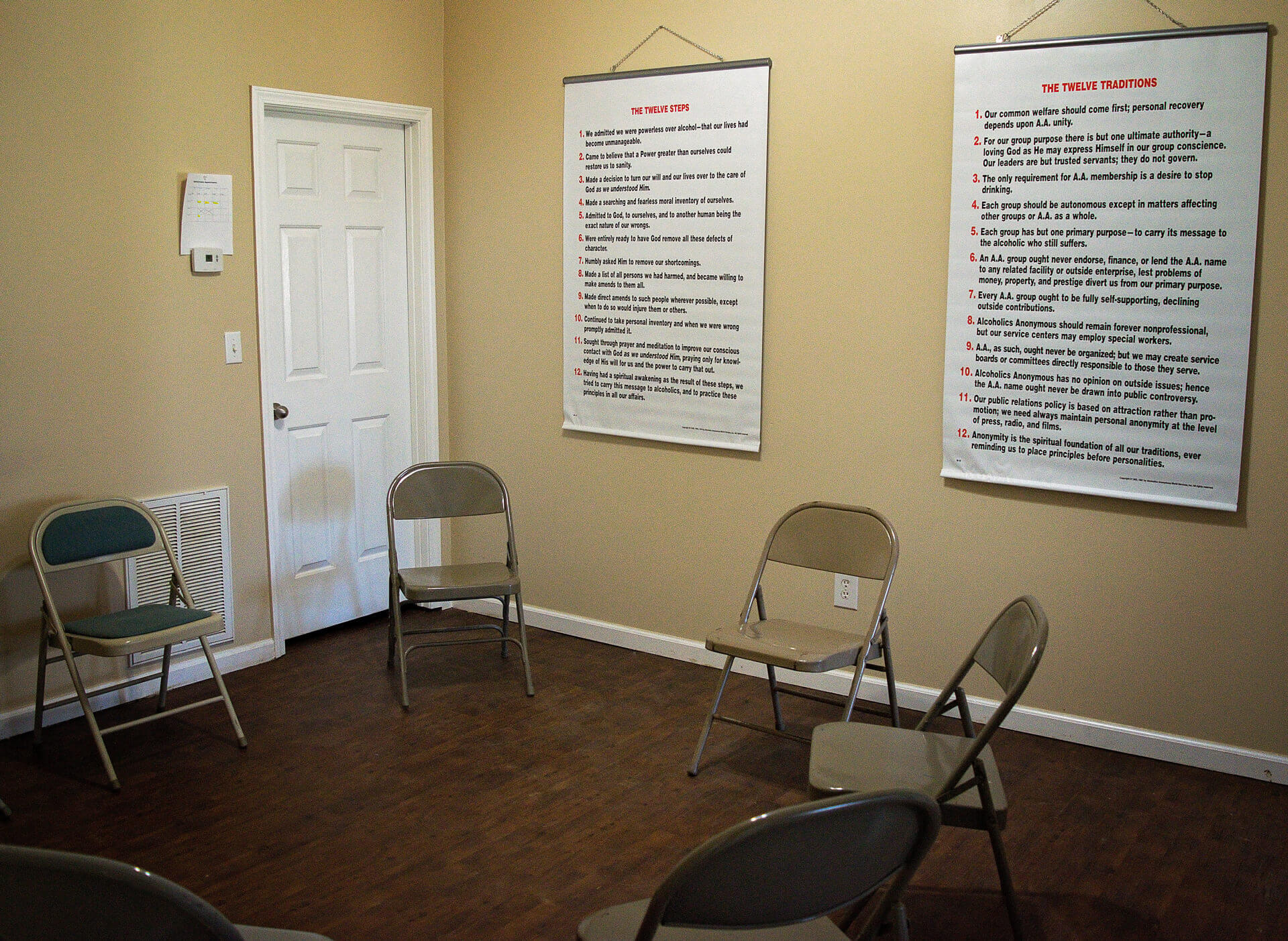Fostering A Lifetime of Support
in Group Therapy
The journey to recovery from drug and alcohol addiction isn’t one you have to walk alone. Group therapy is a cornerstone of effective treatment, offering a unique blend of peer support and professional guidance.
Extra Mile Recovery knows how connecting with others can be a game-changer in maintaining long-term recovery.
From building recovery skills to fostering personal growth, addiction group therapy in Mississippi is more than just meetings—it’s a launchpad for transformation. Stay with us as we uncover the power of shared experiences in overcoming addiction.

Benefits of Addiction Group Therapy in Mississippi
Addiction group therapy provides a cornerstone for recovery by uniting individuals under a shared goal: sustained sobriety. Our sessions offer a safe space for participants to share their struggles and triumphs. As we traverse the road to recovery, we find that peer support is critical in enhancing treatment outcomes.
Furthermore, combining peer support with expert facilitation yields a powerful dynamic. In Mississippi, group therapy sessions are more than just meetings; they allow us to engage in a growth-centric environment. Twelve-step groups are a common feature in our therapy sessions, providing a structured path that guides us toward recovery with clear, actionable steps.

In our four weekly 12-step meetings — 3 offsite and 1 onsite — clients work the 12 Steps and share their experiences battling addiction. While clients work with a recovery specialist to personalize their 12-step programming around their beliefs and addiction, group meetings allow clients to help each other set achievable goals and stay on track.
Recovery Skills
at Extra Mile Recovery
Within each group therapy session, we focus on cultivating skills essential for recovery. These include:
- Meditation: Aiding us in maintaining calm and focus, this practice sharpens our mental clarity and prepares us to tackle the challenges sobriety brings.
- Goal Setting: Critical for tracking progress, setting realistic and achievable goals helps us navigate the recovery process with a sense of purpose.
- Solution-Focused Strategies: These tools empower us to address obstacles directly, fostering resilience and overcoming future adversities.
You’re Not Alone – We Can Help.
Make One Confidential Call to Change Your Life.
The Role of Addiction Group Therapy:
Social Connection
The impact of social connections cannot be overstated—it’s a foundation for lasting recovery. Through bonding with others facing similar battles, we discover a support network that’s both stabilizing and incredibly motivating.
Ultimately, being part of a group allows us to not only receive encouragement but also to contribute to the welfare of others, creating a reciprocal environment of healing and hope.
At Extra Mile Recovery, we understand the nuances of our addiction group therapy in Mississippi and are committed to facilitating sessions beyond the standard. Our commitment is reflected in the positive reinforcement that echoes through every story of healing within our community.

Types of Addiction Group Therapy
in Mississippi
In Mississippi, we understand that the path to recovery is multifaceted. To cater to this, we offer a variety of group therapy sessions that are integral to the recovery journey. Here’s a look at some of the dynamic approaches:

12-Step Groups
Recognized worldwide for their effectiveness, these groups create a structured recovery process. Participants work through the twelve steps, gaining insight and accountability from the shared experiences of others.
Meditation Groups
Addressing the need for mental tranquility, meditation groups guide participants toward mindfulness. This practice helps reduce stress and enhance focus, both crucial for maintaining long-term sobriety.


Goal Setting Sessions
Long-term recovery is bolstered by setting clear, achievable goals. Our sessions empower individuals to envision a future beyond addiction and carve out actionable steps to reach these milestones.
Solution-Focused Resources
We provide our community with tools to solve problems constructively. Rather than dwelling on past behaviors, this approach focuses on forging a path forward with practical solutions.

By integrating these different types of group therapy, we aim to live up to our name by going the “extra mile.” Therefore ensuring everyone can access the support system they need. Engaging with various modalities during addiction group therapy in Mississippi offers comprehensive care that resonates with our community’s diverse needs and preferences.
CONFIDENTIAL INSURANCE VERIFICATION
Complete the Form Below to Find Out if You Have Coverage
Recovery Skills Through Group Therapy
During our Residential Inpatient Program, group therapy plays a few different roles. One of the most effective ways for a client to understand themselves and their addiction is to see themselves in relation to others, especially those of the same gender and similar experiences.
For example, when clients are speaking their truths and sharing their experiences, it puts into perspective what each person is going through and allows other clients to lend empathy, helpful insight, and advice on how to make meaningful changes to their situation.
Another function of group therapy is to help clients practice life skills relevant throughout recovery – collaborative group work, celebrating each other’s successes, and supporting others struggling. These acts encourage clients to use the recovery tool set that they’ve developed in our rehab programs.
Additionally, group therapy is also one of the best ways for clients to break out of isolation during a vulnerable time. We keep our client census small and gender-exclusive so that we can focus on their needs and let everyone’s voice be heard in a setting where all involved have a great deal in common.
Instead of being alone, our clients are making friends, forming strong and positive bonds, and growing a support network that can last a lifetime.

Personal Growth in Addiction Group Therapy
Addiction group therapy in Mississippi plays a crucial role in the recovery process from addiction. Participants develop essential coping mechanisms and communication skills to maintain sobriety.
Furthermore, group therapy offers diverse insights, providing new understanding and cultivating problem-solving skills while recognizing progress.
Peer accountability enhances the motivation for sobriety, and methods like meditation contribute to a holistic approach centered on mental and spiritual growth. Group therapy at Extra Mile Recovery is foundational, building strong, supportive relationships among those in recovery.
Sharing experiences promotes empathy and solidarity, and diverse therapeutic strategies like 12-step programs offer varied support. Meditation and mindfulness exercises aid in maintaining a present and focused state.
Sessions include goal setting, celebrating personal achievements as group milestones, and providing solution-focused tools for managing recovery and achieving long-term wellness.
Extra Mile Recovery acknowledges the overall resilience of those battling addiction, emphasizing the transformative power of shared experiences and collaboration in the journey to sobriety.

Start Addiction Group Therapy in Mississippi Today
Recovery doesn’t end with rehab, nor should the bonds clients build during their time with us. We encourage you to join our alumni brotherhood and sisterhood communities, where you’ll find meaningful communication, connection, and support as you begin your sobriety.
Group therapy is a way to learn, develop practical coping skills, practice empathy, find understanding friends, and build lifelong friendships — all in the same place.
Learn more about our group therapy and other recovery services at Extra Mile Recovery. Contact us today.
